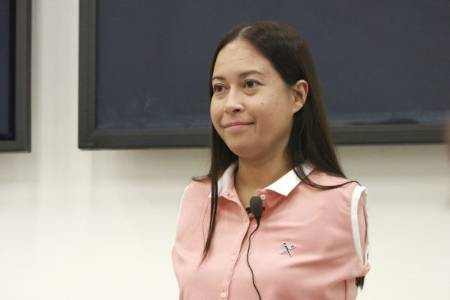Pilot Without Arms

On a visit to USU, Jessica Cox shared her experience as a pilot--and how it fulfilled yet another goal in a string of achievements she has gained as a child of "can-do" parents. But when she came to the CPD, she spoke candidly about experiences common to people with many kinds of disabilities. She has earned a black belt in taekwondo, learned to surf and scuba dive, and of course, she is a pilot. But she said her greatest triumph was regarding herself as a whole person in a world that only sees limitations when it looks at her. "One of the hardest things I do is convincing people I can do things," she said. Being different was also hard, especially in middle school and high school, when she wanted badly to fit in. For years she wore prosthetic arms, not because they made her life easier but because she stood out less when she wore them. At age 14 she left the prosthetics behind, functioned more easily in her world, and dealt more with staring from strangers. At the CPD, she spoke with attendees about shared experiences; staring, learning to adapt, seeking to overcome the asexual stereotype that is so often assigned to people with disabilities. Worldwide, she said, people with disabilities lack access to information about sexual health, contraception and disease prevention, and their incidence of sexual violence is 1.3 times higher than in the rest of the population. "It's a little bit of a touchy subject," she said, but it's important. In her own dating experience, she wanted to find someone who would love her for who she was, not because they admired how she could accomplish her goals while using only her feet. She didn't want a partner who pitied her. She and her husband, Patrick, shared a passion for taekwondo. When they first met, he told her, "Try to kick me in the head as fast as you can before I kick back." Their relationship blossomed from there. But since they travel together for many of her speaking engagements, they have been in many different countries and seen many audiences. Sometimes, she said, when people hear their story, they thank her husband for loving her in a way that makes it sound like he should get a medal. Those moments are uncomfortable for them both. It was also uncomfortable for Jessica's family members growing up to receive the judgement of others when they let her do things for herself--and outsiders worried they weren't doing enough for her. But both Jessica and Patrick said they understand that people are coming from different cultures and perceptions--and they both give people the benefit of a doubt.

